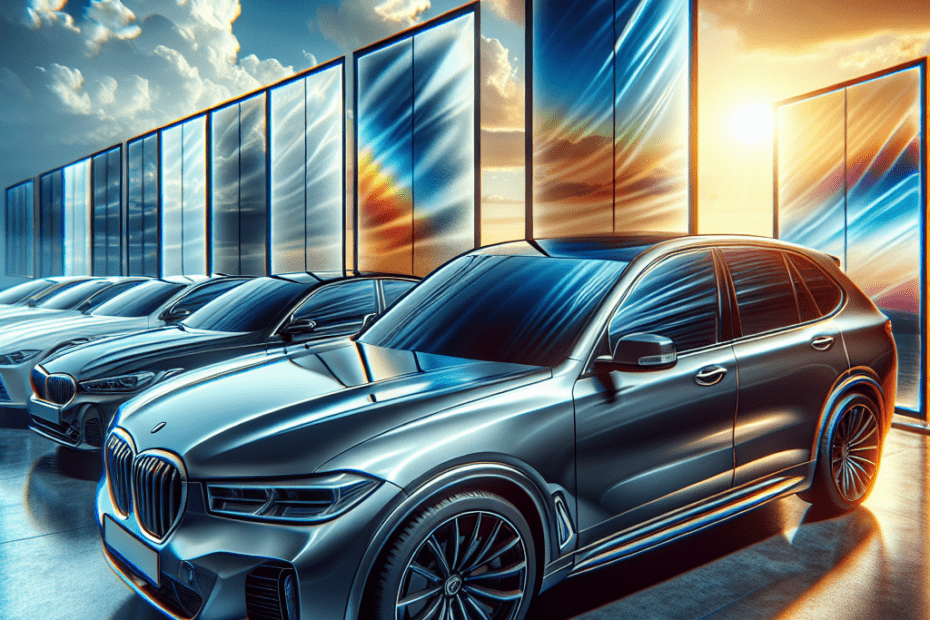“`html
When it comes to protecting a car’s interior from harmful UV rays, many drivers consider investing in the best car window tints for UV protection. Not only do window tints enhance the overall aesthetic of a vehicle, but they also serve an important functional purpose in safeguarding both passengers and upholstery from the sun’s harsh rays. Selecting the right window tint can be challenging, so here’s a comprehensive guide to choosing one that offers top-notch UV protection.
Why UV Protection is Important
Ultraviolet (UV) rays from the sun are known to cause significant damage to both skin and vehicle interiors. Prolonged exposure can lead to fading upholstery and increased wear and tear. Additionally, UV radiation accounts for up to 90% of visible signs of aging in skin, according to the Skin Cancer Foundation. For drivers and passengers, reducing UV exposure can be essential for long-term health.
Types of Car Window Tints
There are several types of car window tints available, each with unique properties that can aid in UV protection:
- Dyed Window Tint: This type creates a dark appearance and blocks solar heat by absorbing it. However, it might not offer the best UV protection compared to other types.
- Metallic Window Tint: Comprising metal particles, these tints reflect UV rays and heat. They are more effective than dyed tints but can interfere with radio and GPS signals.
- Carbon Window Tint: Known for its matte finish, carbon window tint effectively blocks up to 40% of infrared radiation, which equates to robust UV protection.
- Ceramic Window Tint: Although more expensive, ceramic tints offer superior performance by blocking up to 99% of UV rays without hindering electronic signals.
Best Car Window Tints for UV Protection
When selecting a tint, it’s essential to compare its visible light transmission (VLT) and UV protection rating. Here’s a look at some of the best tints on the market:
| Name | VLT | UV Protection |
|---|---|---|
| 3M Crystalline | 40-90% | 99% |
| LLumar CTX | 15-50% | 99% |
| Hüper Optik Ceramic | 20-70% | 99% |
| Suntek Carbon | 5-50% | 99% |
Benefits of Using High-Quality Window Tints
Investing in high-quality window tints delivers a myriad of benefits:
- Protection Against UV Radiation: Quality tints effectively block up to 99% of the sun’s harmful rays.
- Temperature Regulation: By reducing heat build-up, they help maintain a cooler car interior.
- Improved Safety: In an accident, tints can prevent glass from shattering.
- Privacy: Tints offer privacy by reducing visibility into the car from the outside.
Legal Considerations for Window Tinting
It’s important to understand that window tint laws vary by state and country. Overly dark tints can be considered illegal and result in fines. The International Window Film Association provides resources for checking legal tint limits specific to different regions.
Installation Tips
While some may opt for DIY installation, professional tinting is advised for the best results. Expert installers ensure a smooth, bubble-free finish and can help select the right tint for your needs and budget.
Key Takeaways
- UV protection is vital for both health and vehicle longevity.
- Ceramic and carbon tints are among the best choices for UV protection.
- Choosing the right tint involves balancing between UV blocking capabilities and legal regulations.
Frequently Asked Questions (FAQ)
- What percentage of UV rays do car window tints block?
High-quality tints can block up to 99% of UV rays.
- Do window tints make the car interior cooler?
Yes, they reduce the amount of solar heat entering the vehicle, keeping interiors cooler.
- Can window tints be removed?
Yes, window tints can be professionally removed without damaging the glass.
- Are ceramic tints better than metallic tints?
While both offer excellent UV protection, ceramic tints do not interfere with electronic signals.
- Is it legal to tint all car windows?
Legal limits on window tinting vary by region, so it’s essential to check local laws before tinting.
“`
Using these pointers, readers interested in window tinting for UV protection can make informed decisions that best suit their vehicles and personal preferences.
